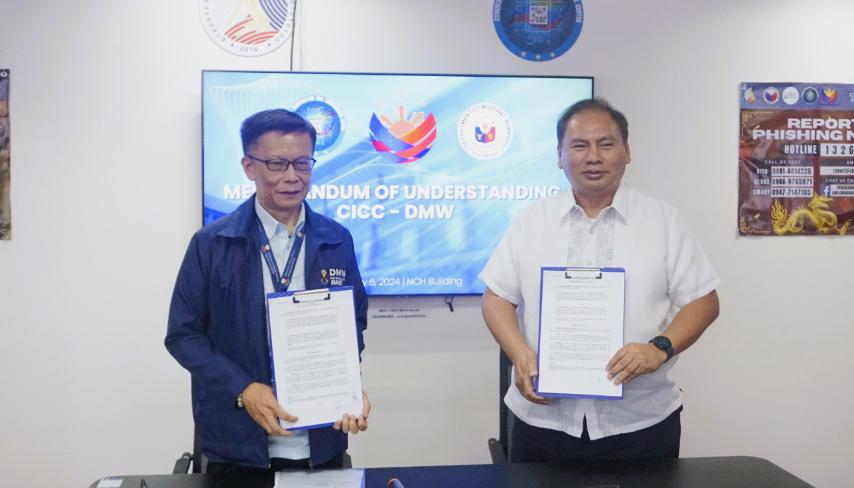The Cybercrime Investigation and Coordinating Center (CICC) and the Department of Migrant Workers (DMW) forged via a Memorandum of Agreement (MOA) on Monday, Feb. 5, at the National Cybercrime Hub Building in Bonifacio Global City, Taguig.

The agreement aims to give Overseas Filipino Workers (OFWs) cybersafe security.
In his message, CICC Executive Director Alexander Ramos emphasized the importance of the said initiative.
"We are here to show our support for our overseas fellow countrymen through the Department of Migrant Workers," he said in a mix of English and Filipino.
"We stand united with the needs of our countrymen, and we would like to assure you that whatever we can do, on behalf of the National Government and under the directive of President Marcos, the modern Filipino, the modern hero, should be helped and served by our government," he added.
The event was attended by Ramos and DMW Officer-in-Charge, Hans Leo J. Cacdac.

As per the signed agreement, the partnership is "to counter the use of information and communication technologies for criminal and unauthorized purposes."
The objective of the said MOA signing is also to foster coordination and resource-sharing between the two agencies, aiming to mitigate cyber-related risks to Filipino migrant workers.
2 .5 million OFW across the globe
Meanwhile, according to data provided by the DMW, there are over 2.5 million OFWs spread across 200 destinations worldwide.
The Bangko Sentral ng Pilipinas (BSP) further emphasized that the remittances from OFWs in 2023 were anticipated to reach USD 37 billion.
Unfortunately, in the past, OFWs were often victims of illegal recruitment.
Cacdac mentioned that currently, OFWs face vulnerabilities like human trafficking, consumer fraud, and online scams.
“OFWs just want to have a better life for their family but a number of people take advantage of OFWs and drain their hard-earned income and resources,” Cacdac said.
Cacdac highlighted that the mere signing of the MOA serves as a deterrent to cybercriminals who specifically target OFWs.